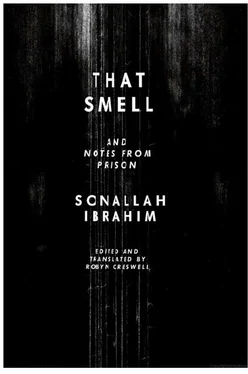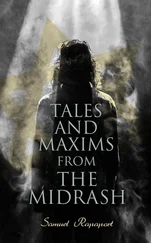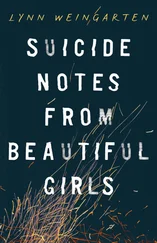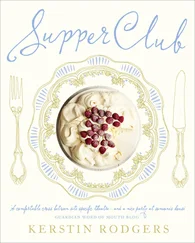Sonallah Ibrahim - That Smell and Notes From Prison
Здесь есть возможность читать онлайн «Sonallah Ibrahim - That Smell and Notes From Prison» весь текст электронной книги совершенно бесплатно (целиком полную версию без сокращений). В некоторых случаях можно слушать аудио, скачать через торрент в формате fb2 и присутствует краткое содержание. Год выпуска: 2013, Издательство: New Directions, Жанр: Современная проза, на английском языке. Описание произведения, (предисловие) а так же отзывы посетителей доступны на портале библиотеки ЛибКат.
- Название:That Smell and Notes From Prison
- Автор:
- Издательство:New Directions
- Жанр:
- Год:2013
- ISBN:нет данных
- Рейтинг книги:4 / 5. Голосов: 1
-
Избранное:Добавить в избранное
- Отзывы:
-
Ваша оценка:
- 80
- 1
- 2
- 3
- 4
- 5
That Smell and Notes From Prison: краткое содержание, описание и аннотация
Предлагаем к чтению аннотацию, описание, краткое содержание или предисловие (зависит от того, что написал сам автор книги «That Smell and Notes From Prison»). Если вы не нашли необходимую информацию о книге — напишите в комментариях, мы постараемся отыскать её.
Notes from Prison
That Smell and Notes From Prison — читать онлайн бесплатно полную книгу (весь текст) целиком
Ниже представлен текст книги, разбитый по страницам. Система сохранения места последней прочитанной страницы, позволяет с удобством читать онлайн бесплатно книгу «That Smell and Notes From Prison», без необходимости каждый раз заново искать на чём Вы остановились. Поставьте закладку, и сможете в любой момент перейти на страницу, на которой закончили чтение.
Интервал:
Закладка:
Writers at Work: The Paris Review Interviews , Van Wyck Brooks (Viking).
— “I believe that it is no longer possible for lyric poetry to express the immensity of our experience. Life has grown too cumbersome, too complicated.” Pasternak.
— “I always feel it’s not wise to violate rules until you know how to observe them.” Eliot.
On Le Nouveau Roman
— “Only through writing can the writer uncover new artistic values.” Alain Robbe-Grillet.
— “The writer must distance himself from visible, known, and studied reality. He must focus on the interior world that is strange to him.” Nathalie Sarraute.
“He would write a book when he got through with this. But only about the things he knew, truly, and about what he knew. I will have to be a much better writer than I am now to handle them he thought. The things he had come to know in this war were not so simple.” Hemingway , For Whom the Bell Tolls .
1964 January
Naguib Mahfouz in al-Katib : “When the novel was interested in life as such, the traditional style was the most appropriate. Human character appeared in all its details. When life becomes a problem, the human being cannot be a particular person but simply a human being. Details vanish, along with narrative, and dialogue dominates all the other aspects. When man stands face-to-face with his destiny, details lose their value.”
The only essential commitment of art is to the truth.
Sex and Morality in the United States, Time Magazine :
— Hemingway’s phrase has become a moral law: “What is moral is what you feel good after, and what is immoral is what you feel bad after.”
— It is part and symptom of an era in which morals are deemed private and relative. Pleasure is more like a constitutional right than a privilege, and self-denial is increasingly seen as foolish rather than virtuous.
— The days of its bold talk of sexual freedom long over, Communism has now become the most powerful force for Puritanism in the world.
— Radcliffe girls believe that necking is dirty because it provokes desire without satisfying it. Intercourse is therefore more virtuous.
— The new sexual freedom in the United States does not necessarily set people free. The great new sin today is no longer giving in to desire, but not giving into it fully and successfully. While enjoyment of sex has increased for many, the competitive mania to prove oneself as a functioning sexual machine makes many others feel neurotically guilty, and therefore impotent or sexually frigid.
Sartre’s article on the Soviet film Ivan’s Childhood , in Les Lettres Françaises , the literary magazine of the French Communist Party: “The better socialist realist productions have, in spite of everything, always given us complex, nuanced heroes; they have exalted their merits while taking care to underline certain of their weaknesses. In truth, the problem is not one of measuring out the vices and virtues of the hero but one of putting heroism itself into discussion. Not to deny it but to understand it.”
March
March 7, I’ve been trying for two days to start writing again. I thought I had figured out what it was really about and how I would write it. But when I start writing I become frightened. Early yesterday I cried because I couldn’t go on for more than two pages. I felt like I’d lost something. I hadn’t thought I would write at night, but then I felt a strong urge and had a clear mind — but with the same result.
“. I read it and was really upset, because it taught me the story of mom and dad, and you and me. It taught me how much effort it cost dad before he could take me away from my mother, and how much worry we caused him. He could have lived in a nice place if we had never existed. But thank God he did keep at it until he could take me away from my mother’s family. I would have been so miserable if I lived with her. It also taught me what Mama Aisha did to us, and a lot of other stuff I hadn’t known before. You’re the one who knows everything. I liked the story because you took it from real life. I mean there’s not too much fantasy in it. I also liked your style and your way of putting things. It’s not the normal way. There’s something a little strange about it and this was the best thing in your story — your way of putting things. But how did you remember everything so exactly?
“I hope you’ll forget the bad stuff, especially about Mama Aisha. She’s changed a lot, to the point where now you can’t believe the bad things she did. She’s the one who insisted on visiting you in Qanatir prison, both times, and she always asks about you. So I hope you’ll forget the rest. As for everything else. ” From my sister’s letter.
The flash-forward, to which Raauf has assigned great importance: It is one element in our new vision of reality. An example from Port Saeed: A. R. is fighting courageously and at the same time we cut to see him ten years later in different conditions. Another example, from the correction of man in prison: the torture reaches a certain level, then stops; five years later, in an ordinary setting, he talks forcibly, calmly, confidently, and from a place of power; but if the torture had been one tick more severe, his fate would have been completely different. In a tragedy of Djamila Bouhired, she is re-imprisoned after liberation. Knowledge of this at the beginning lends strength.*******
From Nouvelle Critique , December 1962, Claude Prévost. “The Battle for Moscow, sixteen years after,” on Aleksandr Bek’s two novels Volokolamsk Highway , published in 1944, and Several Days , published in 1960.
— If the critic’s theory of “an absence of conflict” did harm to the theater, it also harmed the novel, pushing it to refuse a treatment of detail, which critics supposed would lead to naturalism. (Realism is the organization of detail, which must not be neglected or bypassed, but rather clarified in general. To neglect details, with the excuse that they are sordid, is anti-realist. In war, this neglect becomes a betrayal of realism, for the basis of war is sordidness.)
April
April 3, shots. The wounding of Louis Ishaq,******** then his death. Peace of mind?
April 9, silent funereal. Afternoon at the gate: a wonderful wind, with the garden in front of us. The disc of the sun behind the mountains, a big, perfect, yellow-orange circle, surrounded by gray (those who criticize abstraction are asses).
I am reading Freud. What he says about sexual symbols is important. The airplane.
On dreams: condensation: the coherence of parts and elements that have no connection to each other in reality, as in the paintings of Böcklin — the bells — the visual image (via retrospective translation).
* The beginning of the paragraph was written in a different pen and carefully erased, apparently out of caution, at the time the papers were taken out of prison. This is the first time criticism of the regime (despite our political support) is frankly expressed. I also erased the words indicated by the ellipses in the middle of the passage.
** Mustafa Sweif was one of the pioneers of psychoanalysis in Arabic. The book referred to here is The Psychological Bases of Artistic Creativity , his Master’s thesis, published by Dar al-Ma‘arif in 1951.
*** I still remember this novel even now when I think about current events. It had a great influence on me despite the poor translation published, I believe, in the “One Thousand Books” series. I also remember my shock at learning that Camus had supported the tripartite aggression against Egypt in 1956.
**** Was I aware, when I copied these lines, of the extent to which they described our own situation at al-Wahat?
Читать дальшеИнтервал:
Закладка:
Похожие книги на «That Smell and Notes From Prison»
Представляем Вашему вниманию похожие книги на «That Smell and Notes From Prison» списком для выбора. Мы отобрали схожую по названию и смыслу литературу в надежде предоставить читателям больше вариантов отыскать новые, интересные, ещё непрочитанные произведения.
Обсуждение, отзывы о книге «That Smell and Notes From Prison» и просто собственные мнения читателей. Оставьте ваши комментарии, напишите, что Вы думаете о произведении, его смысле или главных героях. Укажите что конкретно понравилось, а что нет, и почему Вы так считаете.












